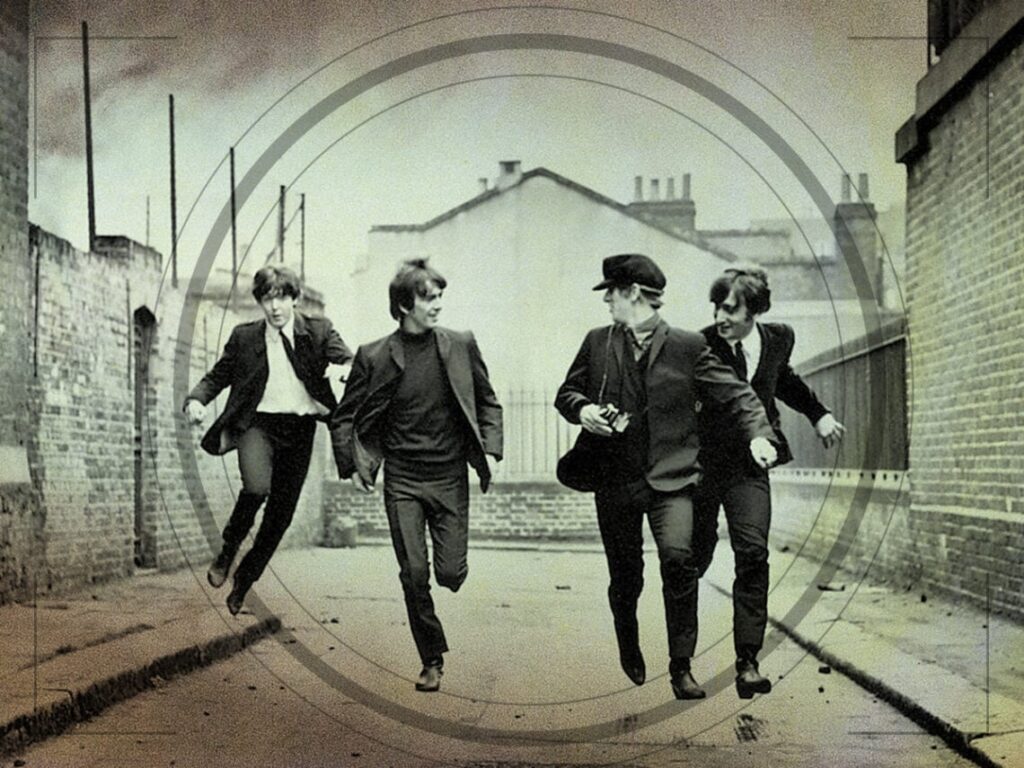The Crux of Beatlemania: the glaring absence in The Beatles film ‘A Hard Day’s Night’
 Posted On
Posted On
(Credits: Far Out / Apple Corps LTD / United Artists)
By 1964, The Beatles had barely had time to catch up with what was happening before Beatlemania took the world by storm. After releasing their debut, Please Please Me, in 1963, they experienced a surge so dramatic that it felt entirely unimaginable for anyone outside of the Fab Four. Capturing this frenzy was A Hard Day’s Night, the film chronicling all the chaos that became their lives in such a short period of time.
Much of what categories The Beatles’ success—at least in a tangible manner, anyway—is often scored by the physical sensation of hearing fan screams accompany their appearances and performances, a stark presence alongside an otherwise starkly normal group of people. A Hard Day’s Night wasn’t just about capturing that phenomenon but also the very elements that inspired such screams in the first place, like the band’s incessant inability to follow rules amid the chaos.
Throughout the film, these moments are the primary comedic sources, with each member partaking in different flavours of rebellion to showcase their individualistic nonchalance in the face of control and authority. A significant chunk of this later on centres around a ruffled Ringo Starr—ever the butt of the joke when it comes to his own relevance in the band—who embraces a momentary break from being in the band to take to the streets, engaging in several mishaps before being detained in police custody.
However, zooming out a little further—beyond the amusement of watching each band member cause a ruckus while their team scrambles to keep things under control—A Hard Day’s Night was as much about exposing their sense of entrapment as it was about celebrating their inexplicable fan craze. Beatlemania might have been in its infancy at this particular juncture, but such a sharp uptake and the impossibilities of people as unwilling as The Beatles to embrace their star status made it clear that, beyond the burdens, this was all an immense blessing.
And yet, from start to finish, there remained one glaring omission. Through the various off-kilter scenarios, flawless performances, and flashes of adoring fans, there was no actual mention of the band’s name. At no point in the film does anyone actually utter the words “The Beatles”, hinting at something akin to representing them as an entity that reached far beyond the usual parameters of an actual band.
Perhaps more interesting is that this absence isn’t all that obvious. Watching the film, it’s unlikely that anyone will be waiting with bated breath to hear the magical words, as though it will miraculously make all the mythology fall into place. It’s a subtle lack, one that fits the broader notion that The Beatles weren’t just a band, a label, or anything wrapped into the vapidity of two words but an entire concept that explodes beyond the walls of simple vernacular.
As the film shifts effortlessly between different elements of documentary, fiction, and concert movies, this only feels more fitting they are analysed. After all, this isn’t a band that ever needed a soft guide into their world, with contexts already assumed from the outset, like The Beatles is just a capture-all term to signify the one thing most people still feel warrants endless conversations. Leaving the name out of the entire project wasn’t just stylistically relevant; it was a testament to their power in 1964.
[embedded content]
Related Topics


